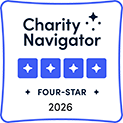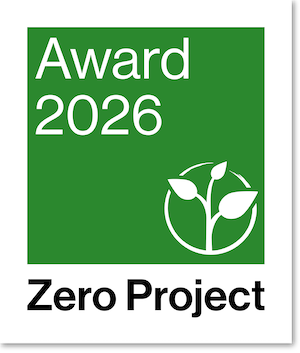Research Goals and Methodology
Els for Autism staff conducts research to assess methods, pedagogy, and technologies to improve socially significant behaviors for individuals with autism. Research methodology may include direct measurement of the observed behavior or analysis of qualitative or quantitative data. The goals of this research are the dissemination of the findings to the greater autism community and the application of identified interventions with individuals with ASD throughout the lifespan.

Three Focus Areas
Identification and Intervention
Els for Autism staff conducts rigorous research to identify and implement evidence-based practices that enhance communication skills, reduce challenging behaviors, and support both individuals with autism and their families. By adding to the existing knowledge base, this research aims to inform best practices, influence policies, and improve outcomes of autistic individuals globally.
Sports & Fitness Therapies
Building upon existing research in recreational therapy, Els for Autism staff conducts rigorous studies to expand the knowledge base on the effectiveness of sports, exercise, and related recreational activities for individuals with autism. Our research aims to understand how these activities can improve physical health, social skills, emotional well-being, and overall quality of life for individuals with autism. This line of research includes establishing the effectiveness of all Els for Autism recreation programs, such as the Ernie Els #GameOn Autism Golf program.
Interventions on Adults
To optimize learning, social, and employment outcomes for adults with autism, Els for Autism staff conducts high-quality research to expand the knowledge base on evidence-based practices for autistic individuals over 22 years of age. By identifying and implementing effective interventions tailored to the unique needs and challenges of this population, our research aims to improve overall quality of life, independence, and community integration. Els for Autism is committed to developing innovative programs and supports that empower adults with autism to reach their full potential.
For more information:
Published Research
- Martinez, J., Kelderman, C., Honsberger, T., Sotelo, M., & Lozott, E. B. (2025). Autism Language and Symbols Preferences: Insights from a Cross-Cultural Survey. Education and Training in Autism and Developmental Disabilities, 0(0). Autism Language and Symbols Preferences: Insights from a Cross-Cultural Survey
- Shanok, N. A., Randles, E., Honsberger, C., Brooker Lozott, E., & Sotelo, M. (2024). Golf training as an effective therapeutic tool for autism spectrum disorder: a multisite evaluation. International Journal of Developmental Disabilities, 1–14. https://www.tandfonline.com/eprint/UUSACKSAU4CKEANA9ADS/full?target=10.1080%2F20473869.2024.2331869&
- Mostafa, M., Sotelo, M., Honsberger, T., Honsberger, C., Brooker Lozott, E. and Shanok, N. (2023), “The impact of ASPECTSS-based design intervention in autism school design: a case study”, Archnet-IJAR, https://doi.org/10.1108/ARCH-11-2022-0258
- Shanok, N. A., & Sotelo, M. (2022). A pilot tennis program for training fitness and social behaviors in individuals with autism spectrum disorder. The Journal of sports medicine and physical fitness, 62(8), 1118–1126. A pilot tennis program for training fitness and social behaviors in individuals with autism spectrum disorder
https://pubmed.ncbi.nlm.nih.gov/35860969/ - Rouhandeh, A.A., Honsberger, C., Shanok, N.A. et al. Brief Report: Assessment of a Caregiver-Implemented Intervention for Improving Social Communication Skills in Toddlers and Young Children with Autism. J Autism Dev Disord (2022). https://doi.org/10.1007/s10803-022-05587-y
- Shanok, N., Brooker Lozott, E., Sotelo, M., & Bearss, K. (2021). Community-based parent-training for disruptive behaviors in children with ASD using synchronous telehealth services: A pilot study. Research in Autism Spectrum Disorders, 88, 101861. https://doi.org/10.1016/j.rasd.2021.101861
- Shanok, N., Rouhandeh, A., Honsberger, C., Brooker Lozott, E., Sotelo, M., Buxbaum., Kolvezon, A., DeRubeis, S., Siper, P.M., Foss Feig, J.H. (2020) Neurophysiological Markers of ASD: Examining the Relationship Between Electroencephalography and ADOS Scores in High Risk Toddlers
- Rouhandeh A, A., Shanok, N.A., Honsberger C., Mulhern, M., Huda, N., Lozott, B. E., Sotelo, M., Buxbaum, J. D., Kolvezon, A., De Rubeis, Foss-Feig, J., Siper, P. M. (2020) S., Bridging the Gap: Access to Genetic Testing in a Community Sample of Individuals with Autism Spectrum Disorder
- Honsberger, T. J., Brady, M. P., Honsberger, C. F., & Kearney, K. B. (2019). Peer-Mediated Literacy-Based Behavioral Interventions: A Job Coaching Strategy for Secondary Students With ASD. Career Development and Transition for Exceptional Individuals, 42(2), 99-110.
- Shanok, N. A., Sotelo, M., & Hong, J. (2019). Brief Report: The Utility of a Golf Training Program for Individuals with Autism Spectrum Disorder. Journal of autism and developmental disorders, 1-7.
- Wagenfeld, A., Sotelo, M., & Kamp, D. (2019). Designing an Impactful Sensory Garden for Children and Youth with Autism Spectrum Disorder. Children, Youth and Environments, 29(1), 137-152.
- Mostafa, M. (2018). Designing for autism: an ASPECTSS™ post-occupancy evaluation of learning environments . Archnet-IJAR: International Journal of Architectural Research, 308.
- Brady, M. P., Honsberger, C., Cadette, J., & Honsberger, T. (2016). Effects of a peer-mediated literacy based behavioral intervention on the acquisition and maintenance of daily living skills in adolescents with autism. Education and Training in Autism and Developmental Disabilities, 122-131.
Other Published Articles
- The Maven Report
- The Importance of Fitness Training for Autistic Individuals
- Exploring Recreation Therapy for Individuals with Autism: Exercise to Improve Socialization, Self-confidence, and Independence
- Managing Anxiety: Tools and Strategies for Emotional Balance
- Beyond Words: Overcoming Barriers to Augmentative and Alternative Communication (AAC) for Autistic Individuals
- The Remarkable Ways Sensory Gardens Can Help People With Autism (Pages 33-36)















